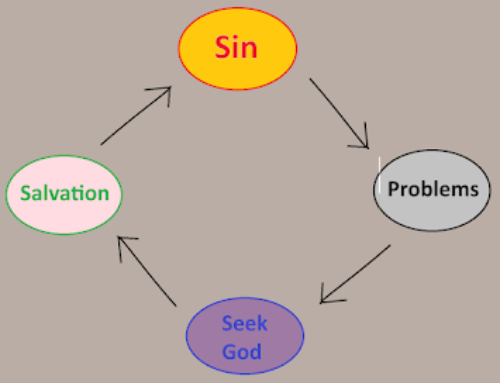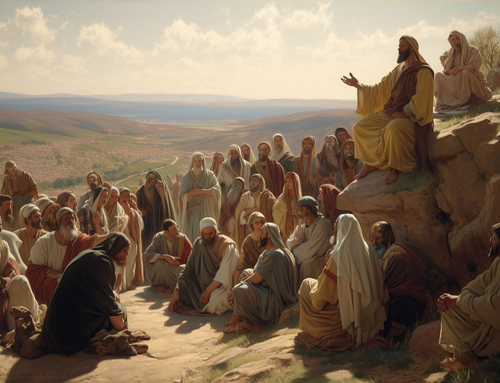In the land of Uz there lived a man whose name was Job. This man was blameless and upright; he feared God and shunned evil. – Job 1:1
Job’s goodness is one of the things that can make the Book of Job difficult to understand. As believers, we often expect to be rewarded for being good. Wiser believers understand that no matter how good a person is, he or she will face hardships. That’s part of life. Still, very few people will ever go through as much as Job did in as short a time. Chapter 1 of Job tells us that he lost all of his animals, all of his children, and most of his servants virtually at the same time. That’s an unfathomable amount of tragedy to be bombarded with at one time and it was just the beginning.
We might expect God to go out of his way to protect someone as good as Job from such circumstances, so many of us may have found it especially curious that God not only chose not to protect Job but actually sanctioned everything that happened to him. To make things even stranger, God allowed the misery to befall Job because He wanted to prove a point to Satan.
“Does Job fear God for nothing?” Satan replied. “Have you not put a hedge around him and his household and everything he has? You have blessed the work of his hands, so that his flocks and herds are spread throughout the land. But now stretch out your hand and strike everything he has, and he will surely curse you to your face.”
The Lord said to Satan, “Very well, then, everything he has is in your power, but on the man himself do not lay a finger.” – Job 1:9-11
Job took everything that happened to him better than most would. Even after being stricken with sickness on top of everything else that happened to him, Job still held trust in God. His wife told him to curse God and his friends falsely assumed that Job did something to be in the wrong. Job seemed to be catching trouble from all sides. Eventually, as good and faithful as Job was, even he began to break down and lose heart.
“Oh, that I might have my request, that God would grant what I hope for, that God would be willing to crush me, to let loose his hand and cut off my life! Then I would still have this consolation—my joy in unrelenting pain—that I had not denied the words of the Holy One. “What strength do I have, that I should still hope? What prospects, that I should be patient? Do I have the strength of stone? Is my flesh bronze? Do I have any power to help myself, now that success has been driven from me? – Job 6:8-13
Job had a series of conversations with his friends and over the course of those conversations, he began to move away from his previous piousness and take on a more self righteous tone. He questioned God, and eventually he drove his friends away and angered others because they believed he was beyond reason. To most of us readers, Job’s position probably seems reasonable. He went through a lot, and despite all his efforts to live righteously, to him, it seemed that God had abandoned him. Surely, God would understand Job’s position too given that God had chosen to allow Satan to ruin Job’s life.
Then the Lord spoke to Job out of the storm. He said: “Who is this that obscures my plans with words without knowledge? Brace yourself like a man; I will question you, and you shall answer me. – Job 38:1-3
To put it simply, God proceeded to let Job have it. From God’s perspective, Job had no right to question Him regardless of what had befallen Job. God gave Job a glimpse of all the wonders of creation to drive home just how far beyond Job’s understanding God’s ways truly are. To his credit, Job was quick to repent and humble himself. He was, after all, a good man to the core. God knew this, and his anger quickly subsided. He rewarded Job and blessed him with twice as much as he lost. Despite everything that happened to him, Job had a happy ending. He learned to keep faith in God no matter what the circumstances because in the end God will work things out in the favor of those that follow and put their trust in Him. That’s certainly a lesson that we, the readers, should learn from the story.
However, while God is certainly correct that we humans can’t comprehend everything with which He contends, the story doesn’t tell us that God had any deeper reason for what was done to Job other than proving a point to Satan. We certainly can’t put it past God that there is a greater meaning in Job’s story. God plays the long game. It’s perfectly possible that God allowed Job to go through all those trials to serve as a lesson for everyone else that would come after him.
It’s also possible that God really just wanted to prove a point. We may not like everything that God does, but he has the right to do it all. He’s sovereign. He has the right to give blessings, and he has the right to take them away. That’s another lesson to take away from the story. God will bless us, but that doesn’t mean that we will always be living the high life. We may still face severe lows through no fault of our own and for reasons that only God knows. Accepting that is part of deciding to follow God too. Even in those tough times, we have to remember that God still loves us, and we have to have faith that no matter how low we fall, God will still be able to reach down and pull us up to even loftier heights just like he did with Job in the end.
Image courtesy of http://www.theologiansinc.wordpress.com







